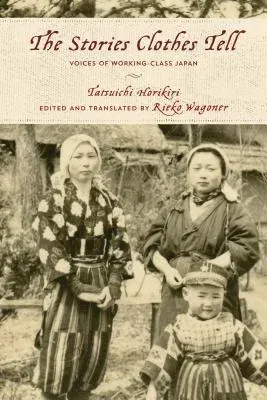Tatsuichi Horikiri
(Author)The Stories Clothes Tell: Voices of Working-Class JapanPaperback, 15 April 2016

Qty
1
Turbo
Ships in 2 - 3 days
In Stock
Free Delivery
Cash on Delivery
15 Days
Free Returns
Secure Checkout
Part of Series
Asian Voices
Part of Series
Asian Voices (Paperback)
Print Length
206 pages
Language
English
Publisher
Rowman & Littlefield Publishers
Date Published
15 Apr 2016
ISBN-10
1442265108
ISBN-13
9781442265103
Description
Product Details
Author:
Book Format:
Paperback
Country of Origin:
US
Date Published:
15 April 2016
Dimensions:
22.61 x
15.24 x
1.52 cm
ISBN-10:
1442265108
ISBN-13:
9781442265103
Language:
English
Pages:
206
Publisher:
Weight:
317.51 gm

